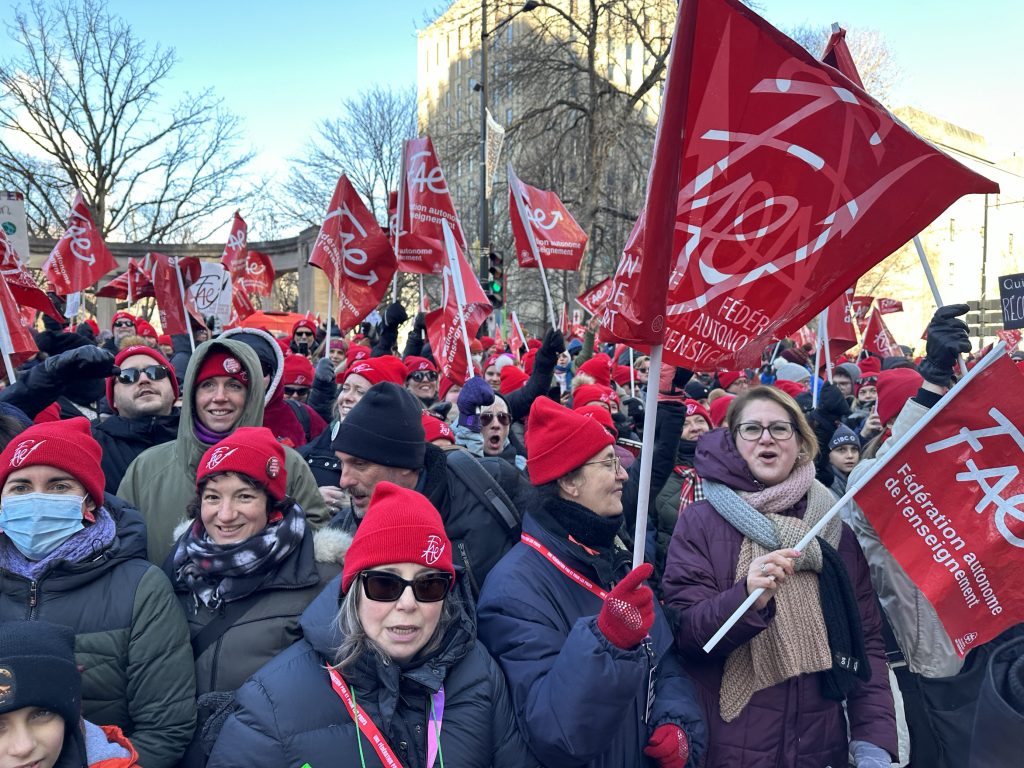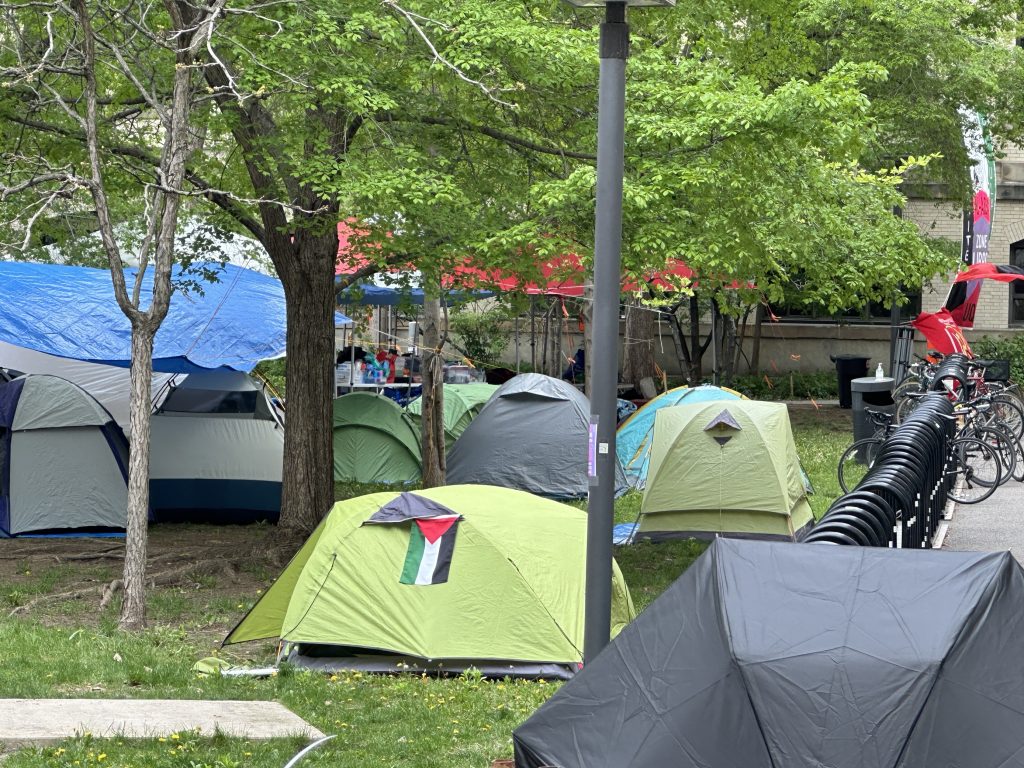Back to class: Quebec teachers, students preparing to return to school after strike
Posted January 3, 2024 10:53 am.
Last Updated January 3, 2024 7:12 pm.
Quebec teachers and students are heading back to the classroom next week after a strike that lasted five weeks.
Unionized teachers with the Fédération Autonome de l’Enseignement (FAE) reached an agreement in principle with the Quebec government last week.
“We’re happy we have something. We’re angry it took so long,” said elementary school teacher Maha Kassef.
On Thursday, the union representing roughly 66,000 elementary and high-school teachers – 40 per cent of teachers in Quebec – said it was putting an end to the indefinite strike, which began Nov. 23.
Some teachers are relieved the strike is over but say there’s still a lot of work to be done.
“Certainly I’m gearing up for a lot of hard work, for a lot of meetings with my colleagues, a lot of ‘how do we do this? How do we approach this? How do we catch up?'” said Kassef.
“For the elementary sector, we’ve gotten good at prioritizing things with COVID. It’s taught us to jump into emergency mode kind of thing, where you’re like, OK, well, I know this is more important than this. And this is so you’ll plan your class time accordingly to catch up with the things that are important.”

Once students return – should the agreement in principle be approved – they will have been away from the classroom for seven weeks.
A teacher at Westmount High School fears some students will be negatively affected by the strikes in the long run.
“We’re in a situation now where the private schools have not lost any days,” said Robert Green. “The French school boards have lost a lot of days, and the English school boards have lost less days. And all of those students are going to be in competition with each other for CEGEP spots, and those ministry exams matter a lot.”
This week, the president of the FAE told members they would have a chance to vote on the agreement “in the coming weeks” when general meetings are held. The union is recommending teachers vote in favour.
“I’m preparing with a certain confidence that I’m not going to be losing a lot more of term, the second term,” Green said. “That said, until the vote has happened, I can’t be 100% confident.”
The exact details of the FAE agreement have not been released.
“I am a little bit worried that we’re going to be voting on a deal that maybe doesn’t address the problems related to class size and the number of students with special needs in our classes. So, until I see the details, I can’t say that I am fully relieved,” said Green.
“It’s about us getting better conditions for children to be happy and comfortable in their classrooms,” added Kassef.
Agreement in principle with common front workers
Some striking teachers were also being represented by the so-called “common front” of unions – CSN, CSQ, APTS and FTQ – which walked off the job sporadically since November. The Quebec government reached tentative deals on salaries with those unions last week.
Those teachers are also expected to return to their classrooms next week.
The Quebec government presented those workers with salary increases of 17.4 per cent over five years, the unions revealed Wednesday. Their collective agreements expired March 31, 2023.
Intermediate bodies affiliated with the common front unions began meeting Wednesday to study the proposed agreement in principle. Assemblies of workers — those who will ultimately vote — should begin in mid-January.
–With files from The Canadian Press



